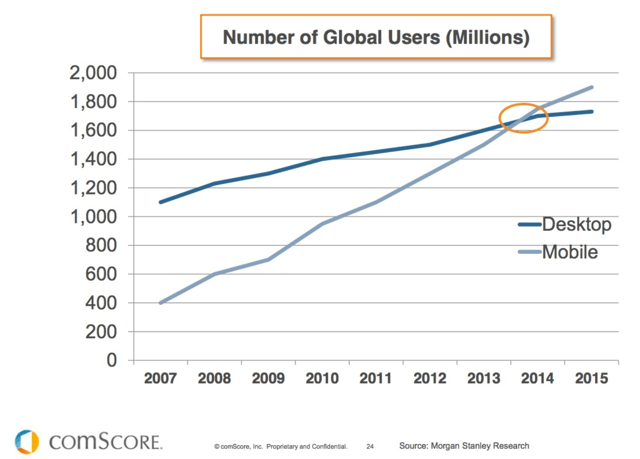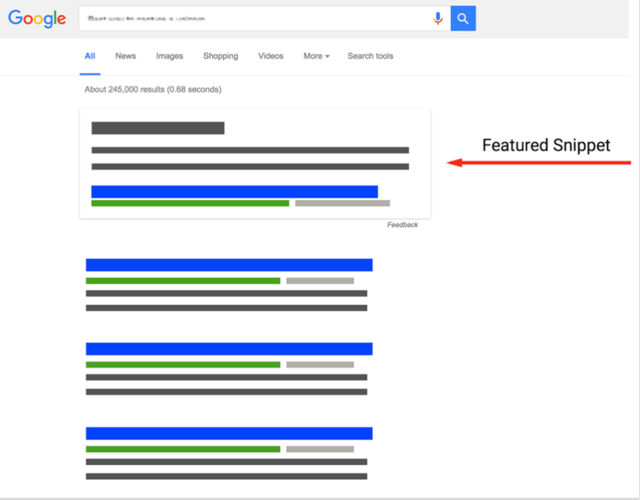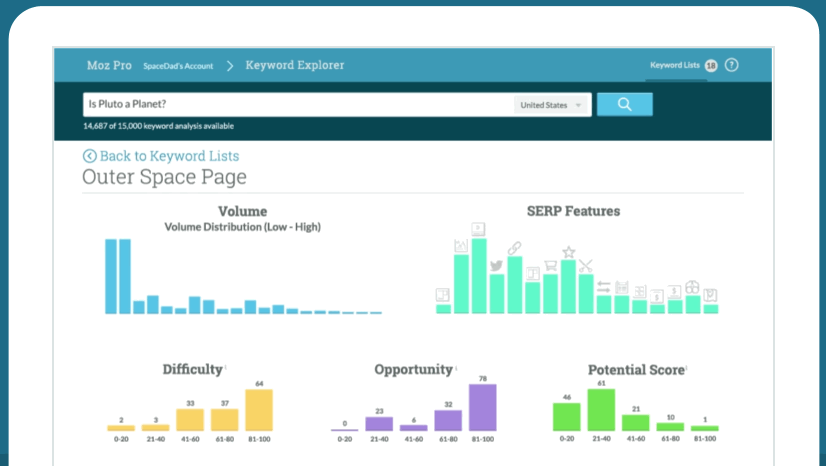
SEO is constantly changing and keeping on top of it is a difficult game, but knowing the latest trends and updates can ensure your website stays near the top of the Google rankings into next year and beyond. There are some broad topics that you need to be aware of for 2018: user experience is key, which means understanding how they are using the internet, on what devices and the content they are looking for.
In this article, we look at the top 10 ways that you can optimise your website right now to give your website a Google boost in 2018.
Optimise content for mobile
Neglect your mobile users at your own peril. Mobile is more important than ever, a fact backed up by the latest data on statcounter by GlobalStats, which shows that when it comes to browsing the internet, over 50% of the market share goes to mobile. A smartphone user who has a bad experience once with a mobile site is unlikely to return, making time spent on a good mobile user experience extremely valuable. While your main desktop site is still important when it comes to Google rankings, your mobile site is also considered a key factor. Since 2015, a Google algorithm has been expanding mobile friendliness as a ranking criteria, and for a large portion of the day (mainly early morning and evenings, outside of work hours), more searches happen on mobile than they do on a desktop. As a result Google has moved to a mobile first ranking approach. This means that if your mobile site is missing important information, or even worse your site isn’t optimised for mobile, it will be hampering your search results.

Learn about Accelerated Mobile Pages
Accelerated Mobile Pages (AMPs) are a project that was initially launched by Google in 2015. This open-source initiative was designed to improve the user experience of those browsing the mobile web. In the two years since its launch, the AMP Project has seen 25 million website domains publish more than 4 billion AMP pages, with relevant content loading in less than half a second. While AMP pages are not used by Google as a ranking signal for your page (yet), providing high-quality AMP content does increase user engagement. It’s about understanding good practice though; this Google Webmaster Central Blogexplains how some webmasters use AMPs as teaser pages, with the users having to click through to the main site to read real content. Many webmasters instead opt to publish two versions of a page (one for the original website and one for AMP), both offering valuable content – and from 1 February 2018, Google policy will require the AMP page content to be comparable to the original content.
Prepare for voice searching
Most smartphones now have the ability for voice searching. In fact, new data suggests that by 2020, 50% of all searches will be voice searches. And that’s not just down to smartphones; devices like Google Home, Amazon Echo, Google Assistant, Siri and other proprietary voice-activated search devices are becoming more commonplace. Just to complicate matters further, each of these devices will present content to users based on a different strategy. Being aware of the importance of voice searching means taking on board a new keyword strategy – most people use voice searching to ask a question and use rich, variable language. Consider what potential questions you want to answer and ensure those relevant keywords are available to search results easily. Something as simple as having a FAQ page on your website can increase results, especially if the questions match the typical wording of what your potential visitors are asking. Chatting to your customer support team, if you have one, is a good start, as they know what questions real customers are asking.

Understand Google’s quick answers
The Quick Answer Box, the Instant Answer area or, as Google actually refers to them, featured snippets, is a prized position on the search rankings page. This section appears right at the top of the search results, designed to give users an instant answer to a question they are asking. This section provides a summary of an answer to a question, which a user can then choose to click through for further information from that website, or continue to browse the search results. Only the single top result to a question is featured in this coveted ‘positon zero’. Quite often, and not surprisingly, this top spot is taken up by Wikipedia, a site that is literally designed to answer questions. However, you can increase the likelihood of appearing here by ensuring that you answer key, relevant questions in a simple, easy-to-digest manner. This might be a paragraph of content that answers a broad topic, which accounts for the majority of featured snippets. However, both bullet-pointed/numbered lists and tables can be displayed here, if they are deemed to answer the question in the most concise manner. Research what already comes up in a given question search and see how it can be improved upon on your site.
These featured snippets are often what is returned in voice searches, which makes featured snippets very valuable as voice search rises in popularity.

Post high-quality content
The days of stuffing a website full of content are long gone. Now, it really is a case of quality over quantity if you want to get your website high on the Google ranking lists. There are so, so many websites out there in every field, that users want to be directed to the very best and authoritative content. Know your topic and ensure that what you are producing is better than what is already out there. The latest Google algorithms (Panda, Penguin and Hummingbird) assess the quality of content that it is indexing and displaying within its search results; it wants to know how well you are answering the questions of your customers and delivering the content they are searching for. This means having a really good idea of who your target audience is and what they are looking for.
Improve the user experience
User experience and engagement are key priorities for 2018. Google knows this; it is a business and it wants a user to continue to use Google as their primary search engine, which means that it is important to them to provide valuable, high-quality and relevant links to ensure a good user experience. Therefore, if Google is going to hand over to your website, it has to continue that good user experience. It’s important to ensure a good page loading time, a low bounce rate and to encourage users to spend time on your website, visiting multiple pages. These factors help to engage your users, but these are also criteria that Google values in its search algorithms. This comes down to having a website that is easy to navigate, offers high-quality content, is accessible, is mobile-friendly and is credible. Users don’t want to have to keep scrolling down a page to find the content they were after or have to navigate through endless tabs – the simple truth is that if they click through from Google and don’t immediately see the answer they were looking for, they will leave and try the next result.

Consider machine learning
Artificial Intelligence (AI) may once have resided firmly in the world of sci-fi. But if you want your website to rank highly on Google search rankings in 2018, you can’t ignore its importance. Google uses its own form of machine-learning AI called RankBrain (announced in 2015) to help deliver its search results. It forms part of its overall search algorithm (Hummingbird) as one of many tools within the main algorithm to sort billions of page results and deliver those most relevant to a user’s search. It is thought that RankBrain is the third most-important factor for ranking a webpage after links and content (though Google is famously quiet on specifics). RankBrain is understood to analyse the intent of a user’s question in Google to find pages that give them the content they are looking for, and it can learn and adapt to new keyword searches and strands to constantly improve results. But how can you apply this to your own SEO? It’s about making sure that keywords are individual to specific landing pages and relevant (but not overused), and that you take into account potential future keywords and questions users may ask.
Expand your keywords
Keywords have always been the buzz word for Google rankings, but times are changing and into 2018 and beyond, it’s important to not rely on ‘keyword stuffing’ to ensure high Google rankings. As we’ve mentioned, users and Google are looking for high-quality content, and rearranging content to shoehorn in a specific keyword phrasing reads unnaturally and feels deliberate. Search algorithms can work beyond exact keyword matching and discover pages that have variations of keywords and will deliver good-quality results. The content should be written for the user, mindful of keyword phrases, but not dictated by them. As users are submitting longer, more conversational search queries (particularly true with the rise in voice searching), so your keywords should expand and develop. One thing to consider is ‘topic clusters’, with content linking to each other to offer a broad topic of information that answers a search query.

Don’t neglect links – but make them good
Links are still a very important part of Google ranking criteria but, as with content, quality is the primary concern rather than quantity. Links are going to remain an important ranking factor into 2018 and for the foreseeable future, but they do need to be used wisely. Publishing a link on your website is a way of endorsing that external content, and identifying your own brand with that link. If you’re going to send a user away from your own site, you are saying that what you are sending them to is so valuable to them, that it is worth them leaving (hopefully, temporarily) your own site. Don’t forget to look at the links that come to your site from other sites too – a good link can be very valuable, for the same reasons outlined above. If a bad site is linking to yours, Google may penalise for this, so it pays to be aware of who is linking to you and try to manage this as much as possible. It is possible to ‘disavow’ a bad link by submitting to Google, which prevents that link from being used against your site rankings.
Get technical with SEO
While many of our points have relied on being creative and delivering valuable, high-quality content for your website, as well as being mindful of the changes in search behaviour now and in the future, it’s also important to understand just how critical technical SEO is. By running relevant and regular audits on your SEO, you can ensure that you stay at the top of the rankings pile and ensure maximum indexability. Any audit now has to include testing the mobile-friendliness of your website to ensure that content is accessible to Google’s smartphone crawlers and that the information can be indexed and presented to users.
Click here for Search Engine Optimisation Services in Bournemouth
Before you head into 2018, it is a good time to give your website an SEO audit. The free LexisClick SEO audit is a quick and effective tool to help you understand how you can start to improve your own Google rankings.


